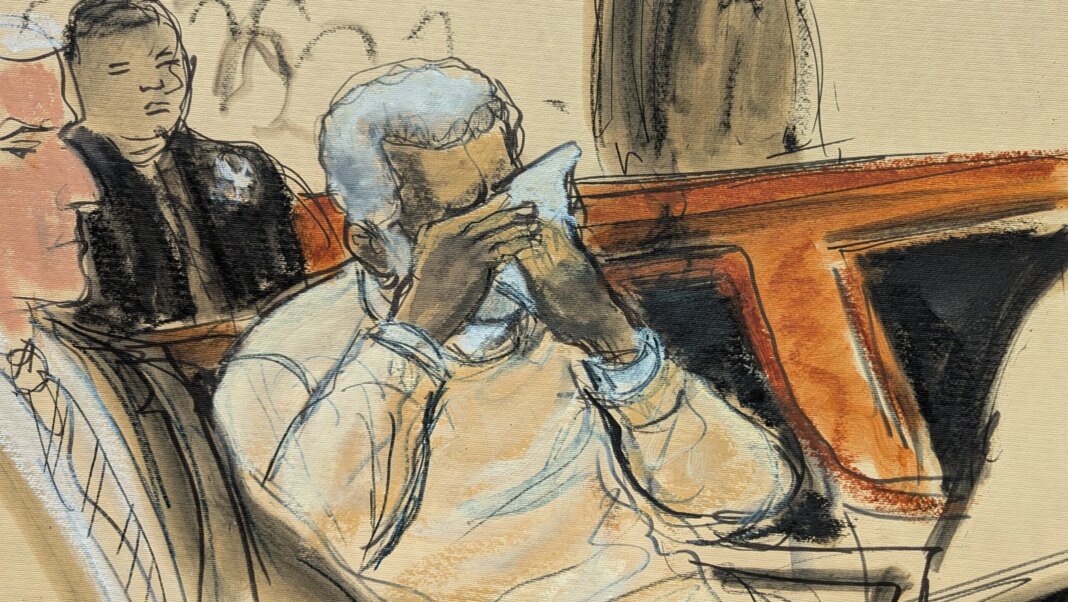Sean ‘Diddy’ Combs: A Deep Dive into His Sentencing and Aftermath
The Sentencing Hearing
On a significant Friday, Sean ‘Diddy’ Combs was sentenced to 4 years and 2 months in prison, a decision made by the judge following serious charges involving sex workers and allegations of violence related to what was termed “freak-offs.” The judge emphasized the need for a lengthy sentence as a deterrent, voicing doubts about Combs’ ability to change should he be released.
Conviction Details
The hip-hop mogul, 55, faced a jury trial where he was convicted in July for flying individuals across state lines for illicit, drug-fueled sexual encounters. While he faced more severe charges, including racketeering conspiracy and sex trafficking that could have resulted in life sentences, the jury acquitted him of these claims. This acquittal, however, did not mitigate the seriousness of his actions, as highlighted by the judge during sentencing.
Emotional Appeals from Family
In a poignant moment during the hearing, Combs’ children implored the judge for leniency. His daughters, Chance and D’Lila, spoke tearfully, expressing fear of losing their father following the death of their mother, Kim Porter, in 2018. D’Lila’s emotional plea, where she articulated a desire for their family to heal together, added a deeply human element to the courtroom proceedings.
Combs’ Own Reflections
During the sentencing, Combs took a moment to reflect on his past, describing his behavior as “disgusting” and a source of lifelong shame. His expression of remorse indicated an awareness of the pain caused by his actions, including domestic violence. He acknowledged that these incidents would haunt him for the rest of his life.
Defense Strategies
Combs’ defense attorneys argued that the sexual encounters in question were consensual. They presented a video to the court showcasing his family life, career accomplishments, and philanthropic efforts prior to his arrest, attempting to illustrate a more nuanced depiction of him as a person rather than solely as a criminal.
The defense also contended that his year-long detention had made him acknowledge his past errors and had prompted personal changes. They sought immediate release, claiming that subsequent sobriety had fueled his remorse.
Prosecutorial Arguments
Conversely, prosecutors sought a more extended sentence, suggesting that justice wouldn’t be served without substantial punishment for Combs. They emphasized that leniency might excuse years of violence and exploitation, framing the case as one where Combs had used his wealth and influence to control and harm others.
Testimonies from Accusers
The trial featured harrowing testimonies from women who accused Combs of abuse, highlighting a pattern of violence and coercion throughout his relationships. Former girlfriend Cassie Ventura delivered poignant testimony about being pressured into degrading sexual activities. Other witnesses corroborated instances of physical abuse, which painted a troubling picture of Combs’ relationships.
The Judge’s Stance
U.S. District Judge Arun Subramanian, who had previously denied Combs bail, made it clear that the acquittals did not absolve Combs from the violent conduct experienced by his accusers. The judge’s remarks signaled a firm stance against any notion that Combs could evade the consequences of his actions.
Outside the Courtroom
The atmosphere outside the courthouse was charged with media presence and public interest, reminiscent of the scenes that played out during Combs’ trial. As journalists flocked to cover the latest developments, public scrutiny of Combs intensified, a reflection of his high-profile life and the serious allegations against him.
Context of the Mann Act
Combs was found guilty under the Mann Act, which prohibits the transportation of individuals across state lines for the purpose of prostitution. His legal team argued that the application of this law in his case was misguided, seeking to challenge the overall charges brought against him.
Character Testimonies and Letters
In the lead-up to his sentencing, several letters were written to the judge—one from Combs himself, claiming that a transformation had occurred during his time in custody. In stark contrast, Cassie penned a letter labeling Combs as an abuser and asserting that he would remain manipulative and cruel.
Reflections on Trauma and Addiction
Combs’ defense team highlighted his struggles with trauma and drug addiction, positing that these issues significantly contributed to his behavior. They emphasized a narrative of recovery and change, urging the court to consider the broader context of his actions.
Throughout the proceedings, both sides presented compelling narratives, with the courtroom becoming a battleground for perspectives on remorse, accountability, and the journey toward potential rehabilitation.
In this complex legal saga involving one of music’s most recognizable figures, the ramifications extend beyond the courtroom, impacting the lives of many involved and stirring public discourse on issues of consent, control, and the consequences of unchecked power.



